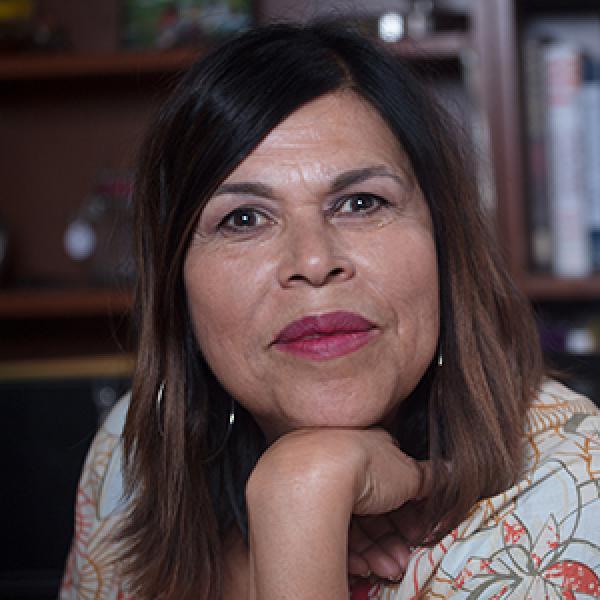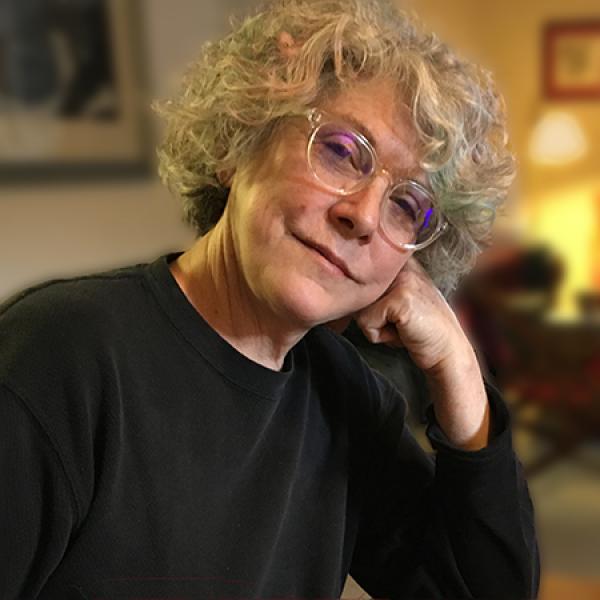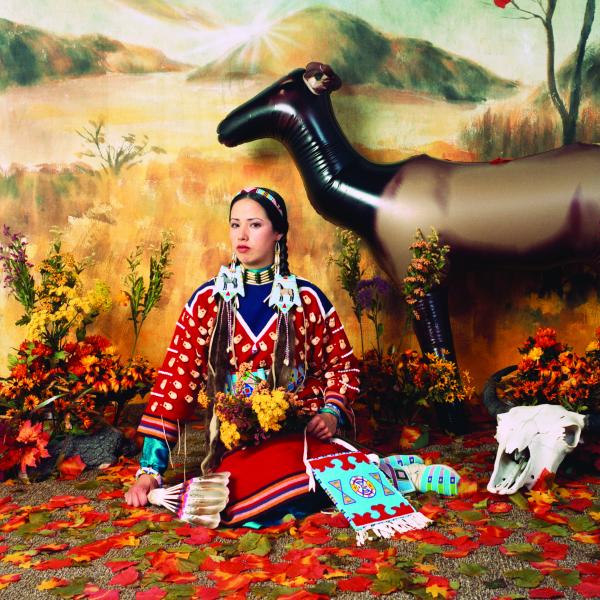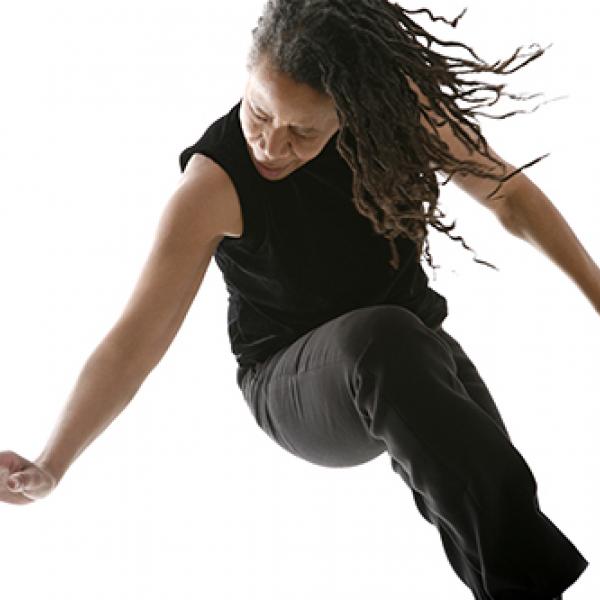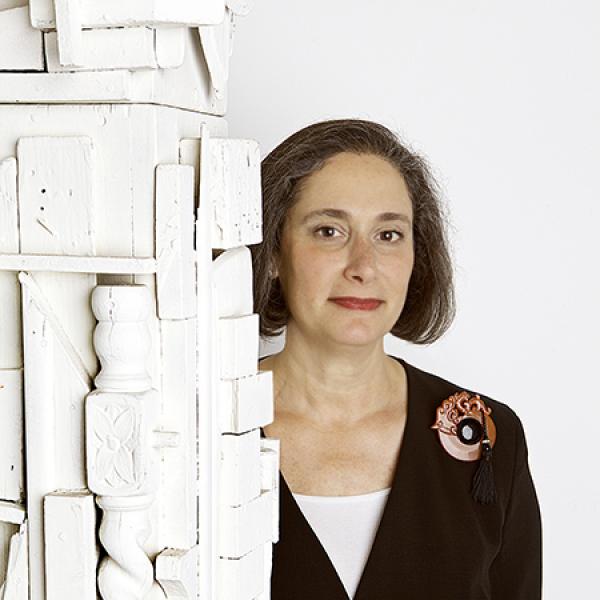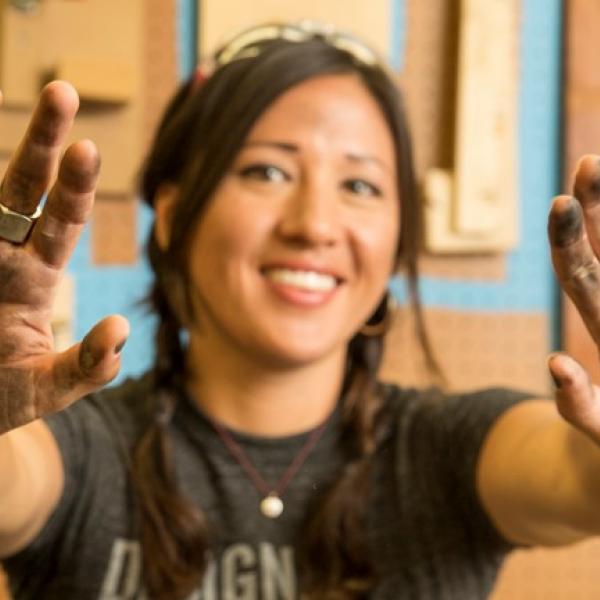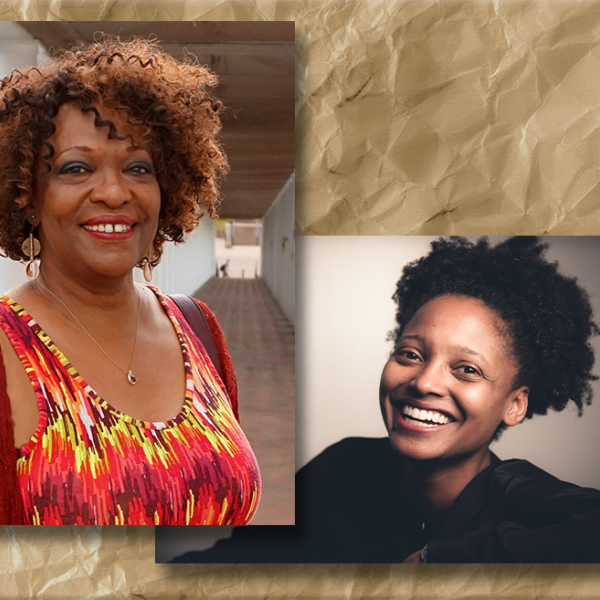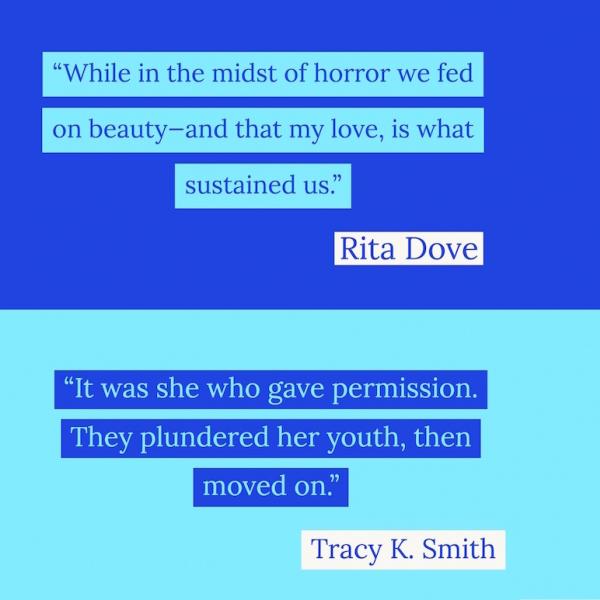Dianne Reeves
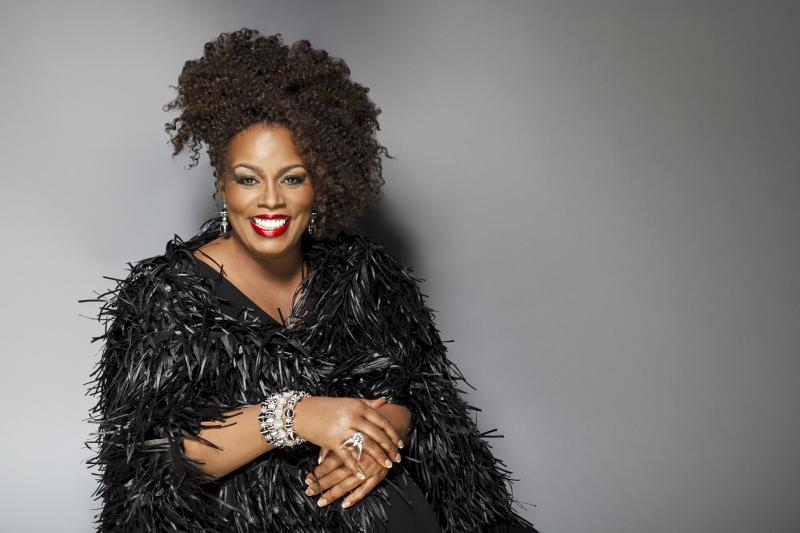
Photo by Jerris Madison
Growing up in Denver, Colorado, 2018 NEA Jazz Master Dianne Reeves was surrounded by music. “I grew up with many generations in my family,” she said, “and so I listened to and loved the music that everybody would play and listen to, because I would see how they celebrated the music.” Reeves has gone on to be one of jazz’s great vocalists, with a far-reaching range stretching across musical genres.
There were many influences in Reeves’ life and musical career, including many notable women. From her Aunt Kay, who taught her the blues at an early age; to Bennie L. Williams, a renowned music teacher in Denver and founder of the Spiritual Voices choir group; to the inspiration of NEA Jazz Masters Ella Fitzgerald, Betty Carter, and Sarah Vaughan, these women have had a lasting impression on Reeves and her music. She talked about the female influences on her music during her interview with the NEA’s Josephine Reed in December 2017. An excerpt of that interview follows.
AUNT KAY
I had this one aunt, Kay, who played the piano and sang the blues. Her sisters and brothers were a part of Vaudeville, and they did all of this wonderful music. But she would sing these blues that were like Ma Rainey or Bessie Smith, that had these dual meanings.
When we’d get together during the holidays, she would play, and my uncle would play bass, and she would always teach me one of those songs. She’d teach me these lyrics, and I’d be singing them and doing the dance that she showed me, how to shimmy, and the adults would be cracking up laughing.
It took me to about the age of 22 to realize what I was actually singing about.
DISCOVERING I COULD SING
My junior high school teacher, Bennie Williams, was really more than a music teacher. She taught us poetry. She helped us put on school shows. She did all these kinds of things to help us stand in each other’s shoes, and it was a really powerful time.
That’s when I discovered that I could sing. I’ll never forget; I was on the stage singing, and I didn’t know how to move or anything, and she said, “Put your arm out.” I put my arm out, and I just left it there, and she’s like, “Put it down.” But I’m singing, and I’m loving how I feel singing, and I’m loving the energy that is coming from being able to do this.
I remember my grandmother used to always say, “Don’t put all your eggs in one basket.” But when I realized that music was inside of me, I decided I’m putting all my eggs in one basket.
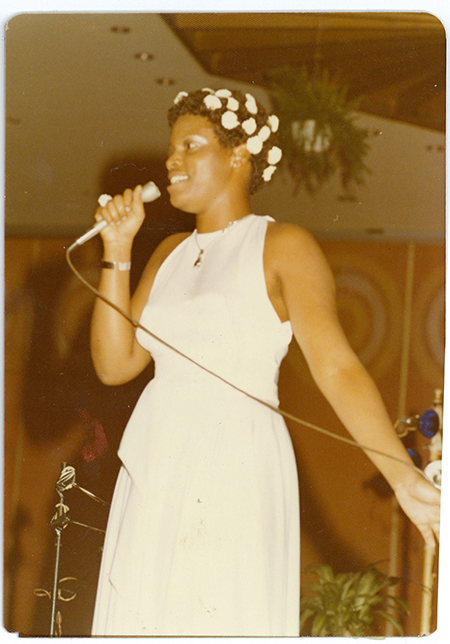
|
FINDING MY VOICE
In high school, we had a really great jazz program that I finally was able to be a part of. They only wanted instrumentalists; they didn’t want any singers. But I made my way in, and I remember the conductor of the band wrote a lot of arrangements and asked me what I wanted to sing.
There was this record that Sarah Vaughan did with Michel Legrand. She did “What Are You Doing the Rest of Your Life,” and I loved the arrangement. I loved the way she sang it, because her voice just seemed to go on forever, every color, every note—her range was beautiful and wide.
I learned the song verbatim, just like she sang it, and we would perform it with the high school jazz band. One day, my uncle said, “You know, that’s probably one of the two or three takes that she did. But after that, I’m sure she never, ever sang it like that again.”
He said, “You find your own way to sing the song,” and that was the beginning of me trying to find my own voice.
IN ELLA’S SHOES
I was in high school, and there was a club called the Warehouse. On the weekends, they would have a jam session [in the downstairs area called the Tool Shed], and I ended up getting a gig there. They tell me Ella Fitzgerald’s coming.
I’m like, “Oh, my God.” I went to see her upstairs. She swung all this Beatles music, and I didn’t even know you could do that. She was supposed to be there three nights, and she ended her appearances there because the altitude here was a little bit much. But her wardrobe was still unpacked and still in her dressing room.
So they tell me the next day, “You have to go on, because Ms. Fitzgerald is not going to be here and we need you to sing a couple of songs.” The next night, I’m sitting in her dressing room, looking at all of these gowns, and there was a pair of periwinkle blue, patent leather pumps sitting off to the side.
I put my feet in them. I went onstage, and I sang the three songs in her stead, and the whole time I was looking down at my feet, thinking, “I have on Ella Fitzgerald’s shoes.”
EXPERIENCING BETTY CARTER
I had this band in Los Angeles, and Joey [Heredia, the drummer in the band] called me. He said, “Come down here. You got to see this lady. She’s singing. She has another show. She’s here all week at Hop Sing’s. I got a ticket for you. Just come down.” So I came all the way from Glendale, and there she was.
It was the beginning of the second set, first night. When Betty Carter entered the stage, it was magnificent. When she opened her mouth to sing, it was this extraordinary spirit that poured out onto the stage. There’s this person who had this very, very broad range that had just jumped off the edge and was flying on the stage. She had this relationship with time that left you in kind of suspended animation.
I went to every show, every night after that. It was like a religious experience.
I’ll never forget, I went to the Tower Records, and here’s Bet-Car Records. I’m like, she has her own record label? So I bought a turntable. I had this record player set up with her records all around the speakers, with flowers. It looked like an altar, and I sat in front of that thing and just listened. I couldn’t get enough.
It’s like seeing a glimpse of something that you recognize in your soul, but now you get to see a spark of it, and that spark really changed my life. She gave me this kind of courage that said, “Do the things that are in your heart, your authentic things.” There was nobody like Betty Carter.
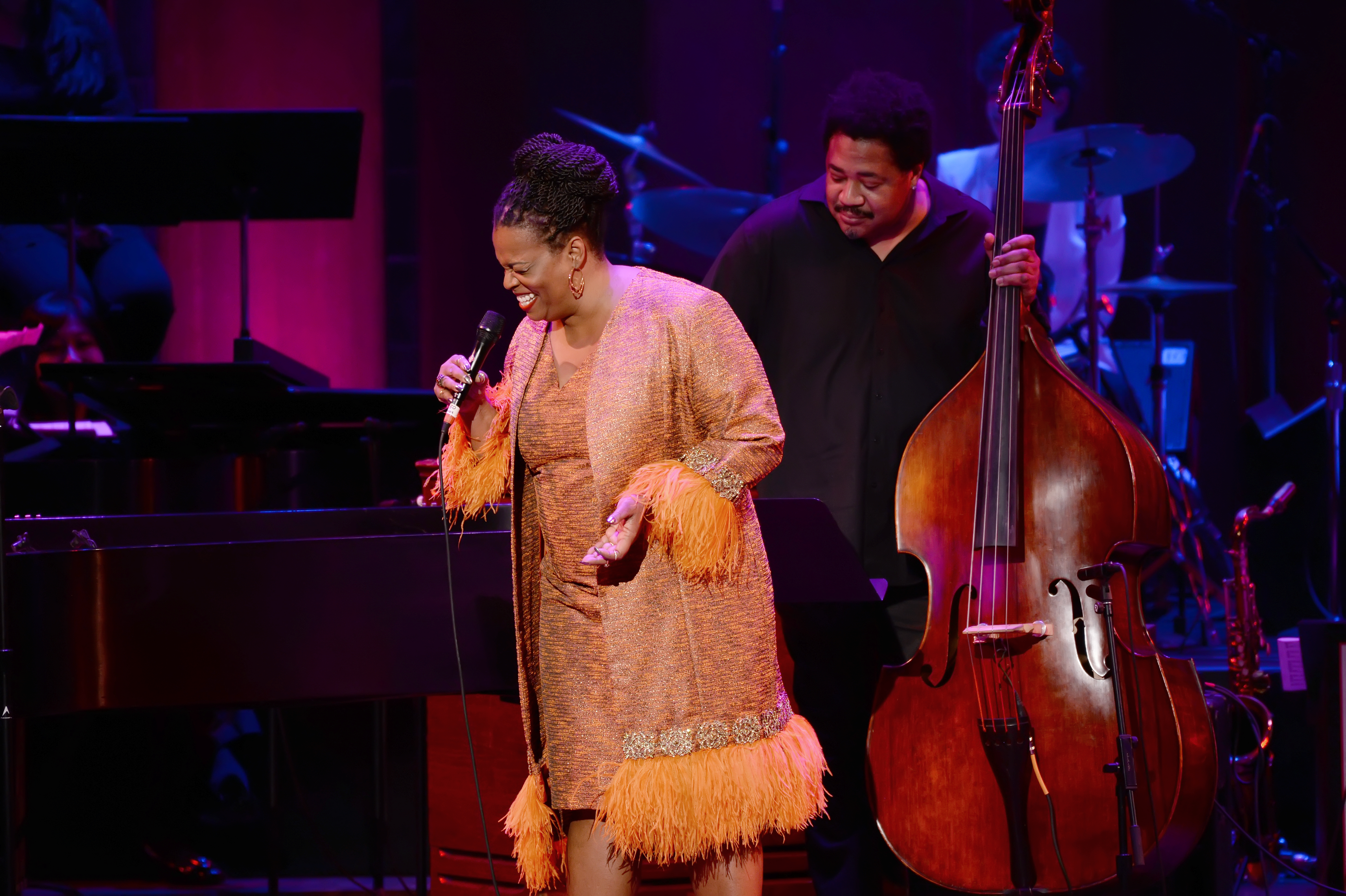
|
GOING WHERE YOU NEED TO GO
The thing that I tell young people is everybody is unique in their approach to the music, and you have to protect that. I tell them to define it, refine it, be able to call on it, be able to stand in it, be able to at any moment jump off the edge with it, because you’re so inside of it.
But more than anything is just to stay focused and stay in love with what it is that you are doing. If you love it and you’re passionate about it, it’s going to take you places—maybe not where this person is going or that person, but where you need to go.


